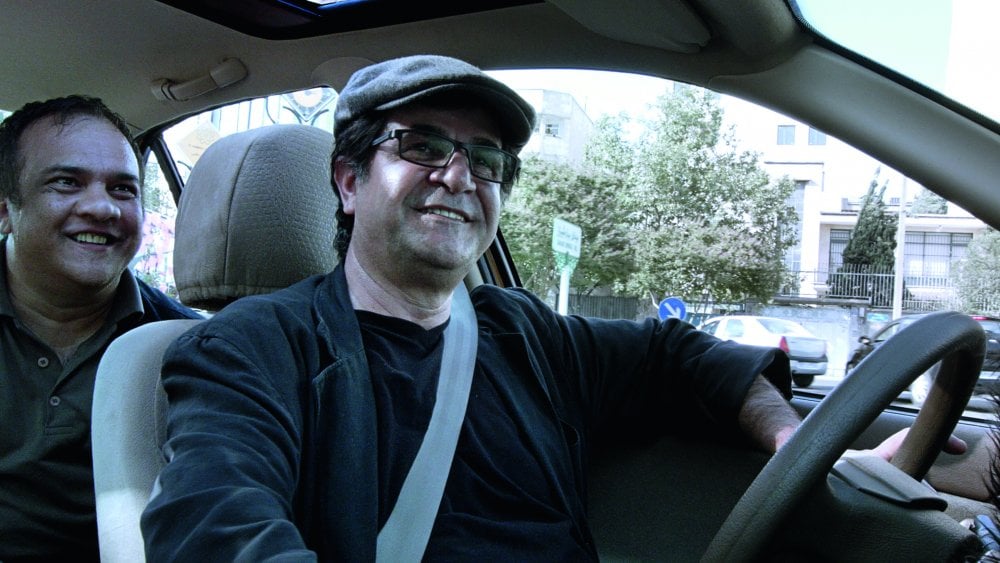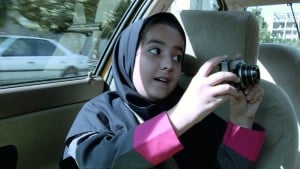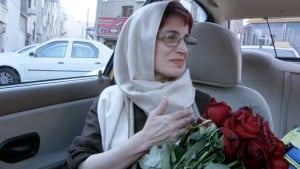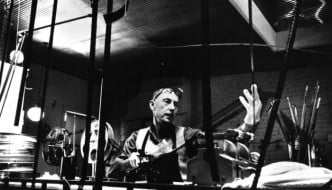Film review: Taxi Tehran – ‘candid but playful’
January 19, 2016

Kino Lorber
Iranian filmmaker Jafar Panahi has been banned by his hoemeland’s authorities from making movies for twenty years. This has forced him into making such clandestine cinematic experiments as Taxi Tehran where he sets up a camera in his taxi cab and seemingly goes about a cabbie’s day’s work. But we suspect that some of his passengers may be set up and semoi-scripted, but not knowing which and how much adds a playfulness and anecdotal feel to the film.

Kino Lorber
It starts with a teacher and a self-confessed petty criminal arguing about the death penalty, such moralising would certainly not have been possible to pass the Iranian censorship board. Next his fly-on-the-wall candid camera captures the victim of a motorcycle accident who, whilst bleeding profusely and ghastly pale, gives his last will and testament. Again, this could be fake, but is significant in that the man gives his house to his wife rather than his brothers as would be expected in Iranian socirty.

Kino Lorber
Then, staright out of a Surrealist classic, two women get in with a goldfish bowl which smashes when the directr/driver slams on his brakes. The fish are saved but the women have to get into another taxi as Panahi is on a mission to pick up his niece. Again, the scene is significant in its depiction of superstition in its most bizarre incarnation. Upon picking up his cheeky teenager niece there starts a film-within-a-film with the young girl making a movie as a school exercise.
When she recounts the rules of filmmaking according to her teacher we are aware of why Panahi has run foul of the authorities with his ‘undistributable sordid realism’. But the highlight of the film has to be his conversation with a flower lady who tells of a young prisoner on hunger strike. This is the most overtly political part of the film and is the most daring given Panahi’s position as out of favour with the strict state. Then there is a surprise comedic ending which sets you thinking that much of this is intended as comic irony, but with the deadliest of subjects at its core: freedom of expression.
Reviewed by Rich Jevons. Showing at Hyde Park Picture House, Leeds, 19th January 2016, National Media Museum, Bradford, 19th January 2016, Kala Sangam Arts Centre, Bradford, 23rd January 2016.
Filed under: Film, TV & Tech
Tagged with: Hyde Park Picture House, Iranian film, Jafar Panahi, Kala Sangam, National Media Museum, Taxi Tehran


Comments